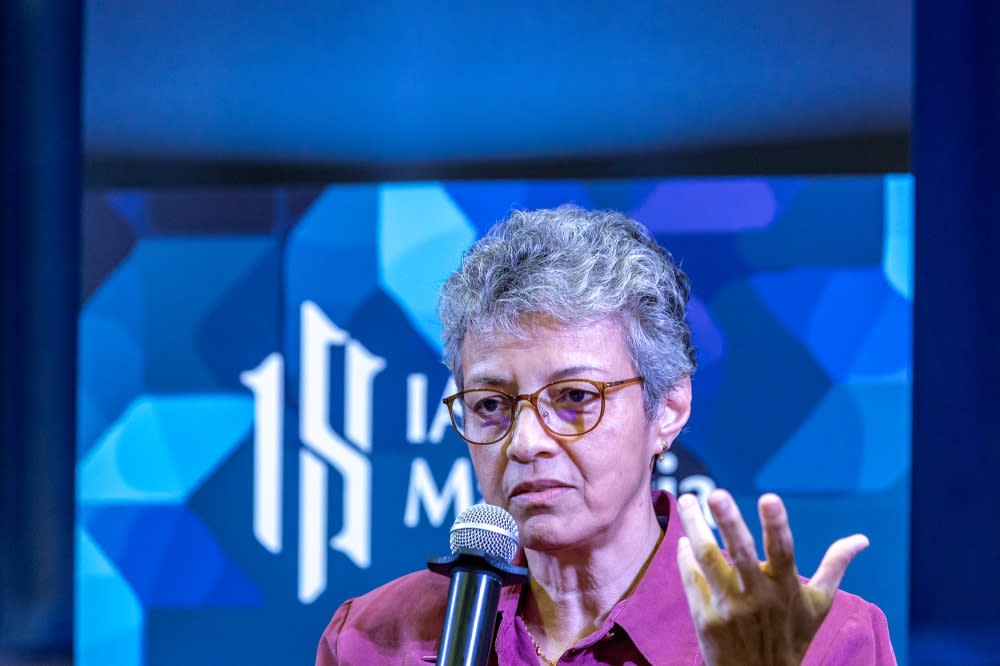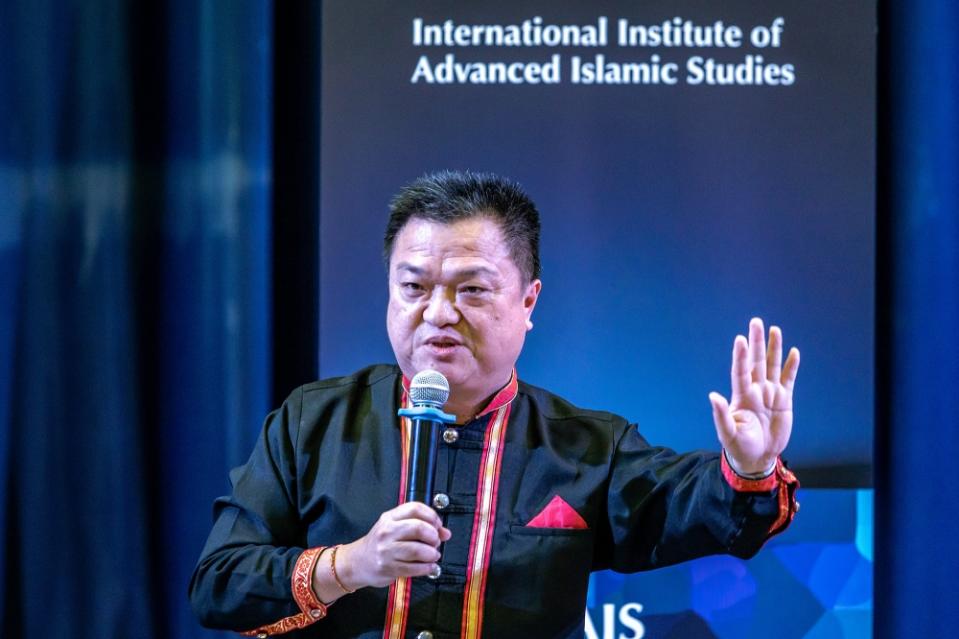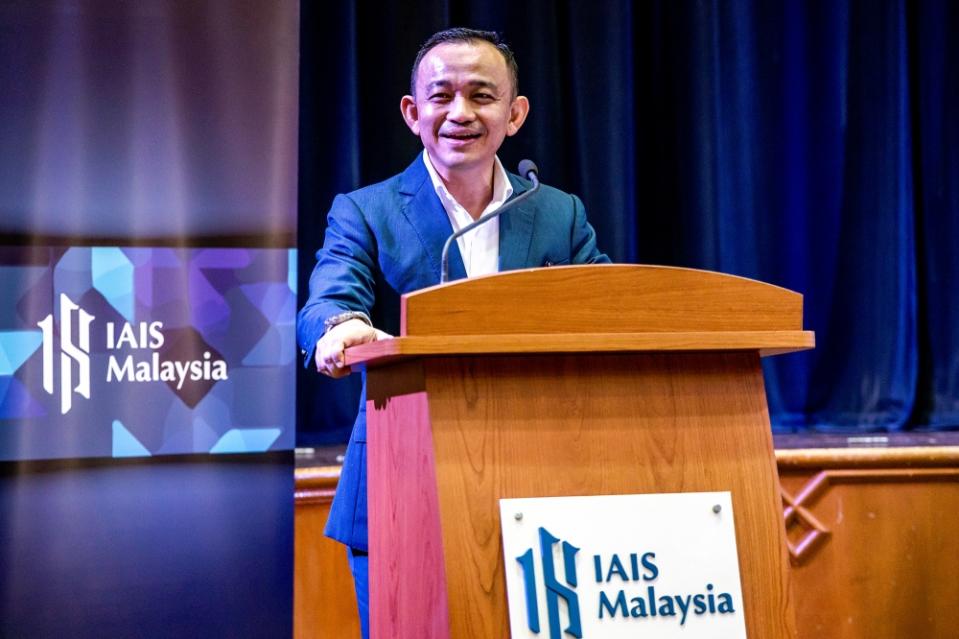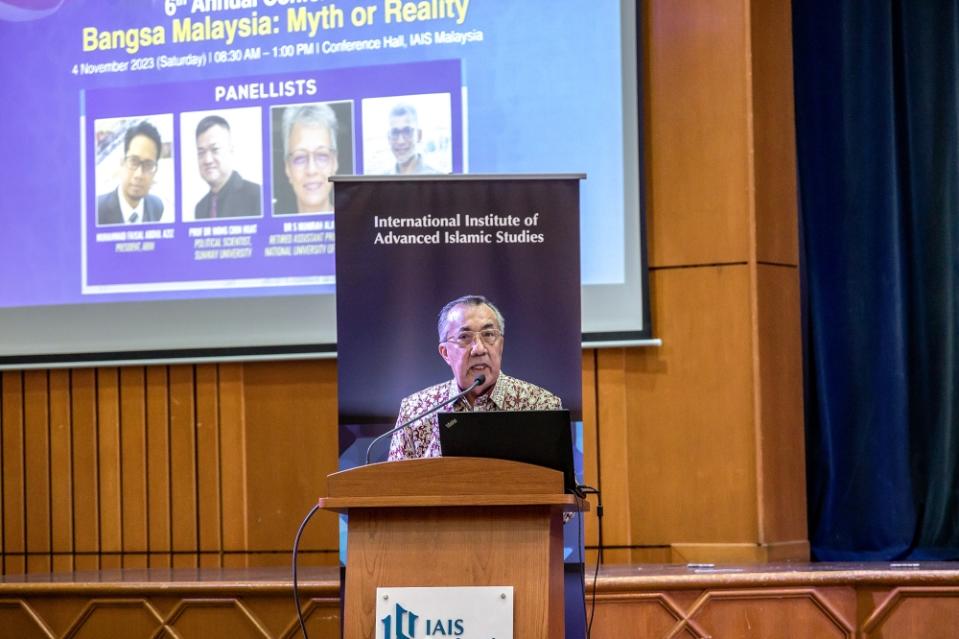How to make ‘Bangsa Malaysia’ a reality? At conference, scholars moot education and law reforms, and political will

KUALA LUMPUR, Nov 5 — Malaysia’s education system needs to be reformed in order to make the ambition of having a united “Bangsa Malaysia” or Malaysian nation come true, social science scholar Sharifah Munirah Syed Hussain Alatas said.
Munirah, a retired assistant professor at Universiti Kebangsaan Malaysia, said this when speaking at a conference yesterday titled “Bangsa Malaysia: Myth or Reality”, which was the sixth annual conference organised by non-government organisation Persatuan Promosi Harmoni Malaysia (Harmony Malaysia).
This year, it was co-organised by the think-tank International Institute of Advanced Islamic Studies (IAIS) Malaysia.
“Well, can the Bangsa Malaysia be a reality? As I mentioned earlier, this is only an aspiration up to today. But can it be reality? Yes, it can be, if we reform the education system.
“We cannot do anything, we cannot move forward with anything unless we take this seriously. Reform the education system, from primary right up to tertiary. And most importantly, pay more attention to teacher education. Our teachers are undertrained, underpaid and overworked, it’s simple,” Munirah said in her speech, which was greeted with applause from the floor.
She also said Malaysia has to acknowledge that brain drain is a serious problem due to “Bangsa Malaysia” failing, adding that there was also a need to revamp the curriculum and pedagogy at schools.
“Teach unadulterated history in the schools. Introduce subjects that encourage interfaith dialogue, world civilisation, global events, the struggles of marginalised people or various races all over the world,” she said.
She also said Malaysians have forgotten about “patriotism” due to endless arguments on ethnicity and religion, and that being open could help cultivate patriotism.
“My perspective about this whole discussion about Bangsa Malaysia is basically about building confidence and dignity, a sense of being Malaysian.
“A united Malaysian nation is about being more open-minded, is about being open to new knowledge, is about being open to debating, asking probing questions, dialogue and critical thinking. If we are intellectually open, we develop confidence and self-pride.
“When we are confident as a society, we feel dignified as individuals and we develop a sense of patriotism,” she said.
According to Munirah, this sense of patriotism has not been developed due to corruption and education reforms being ignored.
“We have little regard for moral and ethics in society but we pay heavy attention to religious rituals. Any discussion on Bangsa Malaysia must be linked to the failure of our education system. Spend time and resources reforming that before we even attempt to answer this question ‘myth or reality’.
“Lastly, if national schools are the people’s choice, people will flock to them so there will be no need to be a debate and a heated discussion about vernacular schools,” she said.
National type schools vs national schools
Vernacular schools — such as the national-type Chinese primary schools (SJKC) or national-type Tamil primary schools (SJKT) where Mandarin and Tamil are used as the medium of instruction — crop up seasonally. Some critics claim that their continued existence hampers national unity.
National schools, known as Sekolah Kebangsaan locally, typically use the national language as the medium of instruction.

Political scientist Wong Chin Huat, one of the speakers at the event, agreed with the suggestion to fix the education system. — Picture by Firdaus Latif
During the conference’s question-and-answer session, a member from the audience that numbered 111 people, suggested that “Bangsa Malaysia” is now a myth.
The person also claimed that it would not be possible to have Bangsa Malaysia with a multilingual education system and that there was a need to fix the structural problems starting with the education system.
Political scientist Wong Chin Huat, one of the speakers at the event, agreed with the suggestion to fix the education system.
Speaking specifically about multilingual and multistream education, Wong made two points, the first is that assimilation is often a cause of division than a tool for unity as people cannot agree on how they should be.
“Second, if you are just looking at our schools now, the one that is actually most multi-ethnic happens to be Chinese-medium national type school,” he said.
In a July 5 press statement on its website, the United Chinese School Committees’ Association of Malaysia (Dong Zong) said there has been an increase in the percentage of non-Chinese students out of the entire student population at SJKC over the years.
Data from Dong Zong for 17 of the years from 1989 to 2020, there were initially 17,309 students or 3.05 per cent of total SJKC students in 1989 who were non-Chinese.
Over the years, the non-Chinese students increased to 32,203 or 5.52 per cent (1994), 52,043 or 8.66 per cent (1998), estimates of 65,000 or 10.66 per cent (1999), 87,463 or 15.31 per cent (2014), estimated 94,608 or 18 per cent (2017), and an estimated 101,011 or 19.75 per cent (2019).
Law reforms
Another member of the audience then suggested the abolition of the Sedition Act and to overhaul libel laws in Malaysia, saying it would be difficult to evolve as a society without open discussion without fear or favour.
Munirah responded by saying she agreed that certain laws which prevent dialogues should be abolished.
She said the Universities and University Colleges Act 1971 (UUCA) and the Statutory Bodies (Discipline and Surcharge) Act 2000 are “major obstacles which prevent academics from getting involved in dialogue and transformation of ideas and speaking up their minds” because it could affect the careers of academics at universities.
“I agree with that, but that doesn’t mean we cannot speak about Bangsa Malaysia. All these discussions have to be done simultaneously,” she said.

IAIS Malaysia chairman and former education minister Maszlee Malik said education is one of the key methods to achieve “Bangsa Malaysia”. — Picture by Firdaus Latif
At the same conference, IAIS Malaysia chairman and former education minister Maszlee Malik said education is one of the key methods to achieve “Bangsa Malaysia”.
“Education can instil the values and principles of Bangsa Malaysia in our young people. Education can bridge the gaps and foster integration among our diverse communities and groups,” he said in his speech.
He noted that the Education Ministry had during his previous brief 20-month tenure as minister launched programmes to enhance national integration, civic consciousness, critical thinking among students, and that philosophy and ethics were also made mandatory for every university student to learn.
Maszlee also said that the repeated calls for “education for all” and access to quality education for everyone is to move the nation towards a united Bangsa Malaysia as it cannot be built if there were groups that were left behind.
Cultivating a sense of belonging

Harmony Malaysia president Datuk Richard Robless said the message of the national song “Negara Ku” and the national principles “Rukun Negara” — which he said were the pillars to building a just, progressive and unity country — should be cultivated from school days. — Picture by Firdaus Latif
Harmony Malaysia president Datuk Richard Robless said the message of the national song “Negara Ku” and the national principles “Rukun Negara” — which he said were the pillars to building a just, progressive and unity country — should be cultivated from school days.
He said this is because education was the foundation towards a developed and united country, adding that the priority should be on setting up Rukun Negara clubs and that the country would then be able to produce citizens who are loyal, united and with a true sense of belonging.
“In our efforts to strengthen unity and solidarity, education is always the key priority and although much has been written and spoken about our declining academic standards, lesser attention seems to have been devoted to nurturing values that help in the growth of a responsible and caring society and a united nation. Our education ecosystem sadly has not delivered and our young are today more divided and polarised,” he said.
He noted that education is the key to development of knowledge and development of an informed society as well as an understanding on what strengthens, what unites and what divides.
He said culture provides identity and that sharing cultural values and practices would complement and strengthen understanding and respect which would be required in a society with diverse ethnicities, culture and belief systems.
Robless said both education and culture would dictate the future that the future generations will get to see.
“As a nation, we must stand as one to embrace humanity and celebrate our diversity for this is what gives us strength. That strength is aptly captured in our national motto, Bersekutu Bertambah Mutu,” he added.
IAIS Malaysia deputy CEO Ahmad Badri Abdullah summed up the key points from the discussion at the “Bangsa Malaysia” conference, including unity in diversity and Malaysia’s strength as being in its diversity; the promotion of inclusivity and its importance to ensure that all Malaysians feel a sense of belonging and equal opportunity within Malaysia.
Ahmad Badri also said education is a powerful tool to shape the values and principles of “Bangsa Malaysia” and that the future generation can contribute to a more harmonious and united nation if a sense of national identity and tolerance and understanding is fostered.
He also argued that “Bangsa Malaysia” is neither a reality nor a myth, but that it is a process that Malaysians are still going through as a nation.
“So to realise the dream of Bangsa Malaysia, we must confront and overcome the challenges posed by divisive forces. And this requires a commitment of our shared identity and the culture of dialogue and cooperation,” he said in closing the conference.
He added that political will is required to enable “Bangsa Malaysia” to materialise.
The conference also featured Angkatan Belia Islam Malaysia president Muhammad Faisal Abdul Aziz and Syed Muhammad Khairudin Aljunied who is an adjunct fellow at IAIS Malaysia as panel speakers.



